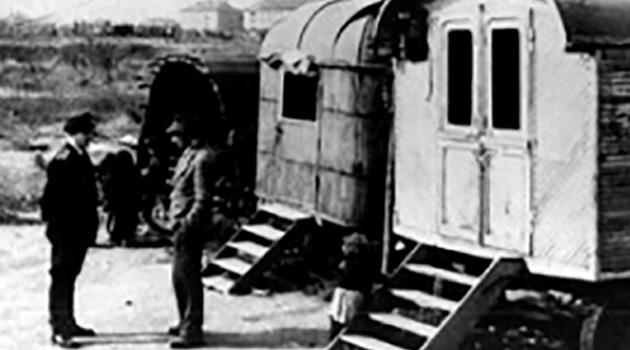Czechoslovakia launched the forced resettlement of Romani people 53 years ago

Fifty-three years ago, communist Czechoslovakia adopted a resolution that began one of its many failed social experiments implemented as part of attempts to assimilate Romani people, the so-called “policy of organized dispersion”. The aim of Resolution No. 502, dated 13 October 1965, was meant to be, above all, the “destruction of undesirable concentrations of the gypsy population”, i.e., primarily settlements in eastern Slovakia, but also housing developments or streets in industrial cities where mostly Romani people lived.
In practice, this meant absurd restrictions criminalizing individual, spontaneous migration of Romani people around the republic and orchestrating artificial relocations of Romani people from Slovakia to the Czech lands, frequently without actually providing any of the support promised to those who were relocated, such as appropriate housing or work opportunities. This was due to insufficient communication among the regions that were meant to be partners in the project and between which the relocation was meant to be performed, and frequently also due to the unwillingness of local authorities to accept the relocated Romani persons as residents.
These attempts to disperse Romani people often deteriorated the socioeconomic situations of those whose lives were ostensibly meant to be improved and completely failed to have their intended effect. These measures personally affected Romani community member Michal Čonka, whose oral history was recorded for ROMEA’s “Memory of the Roma” (Paměť Romů) project.
From the testimony of Michal Čonka
My parents said: “Sell the cottage [in Slovakia], buy a duplex there [in Moravia], and we’ll move there too.”
So I did that. That’s where the tragedy happened.
We bought the property, we paid in full, it was transferred to us and the sale was notarized. Law 502 was in effect back then, regulating the dispersion of Romani people around the republic.
That law meant that while we were allowed to buy the real estate, we were not entitled to reside in it. The old owners moved away, my parents moved in – there were two apartments, one over the other – and just imagine, we received an order from the city informing us that they were now being evicted, my parents, at their own cost and risk.
Whether they had somewhere else to go, nobody cared. They had come from Slovakia, so it was assumed they would return there.
I went to the Regional Committee office of the party here in Ostrava to ask what to do, and that was a stroke of good luck. A person I knew there had just returned from Moscow, where he had been studying.
His name was Zuzka, he was a good guy. I approached him, which wasn’t so easy, and he saw how depressed and upset I was – he said: “Comrade, what’s wrong, have a seat, would you like a cup of coffee?”
His behavior was completely different than that of the people at City Hall. I told him the whole story.
He was surprised and said: “This is ridiculous.” I said to him, “Yes, but it’s really happening.”
He said: “You know what?” Then he just picked up the telephone and convened a meeting at the Municipal Committee of the party, and he summoned all those criminals – I call them all criminals, the people who worked there – plus the director of the transit authority, the chair of the Regional Committee, the all-factory committee of the party, the ROH (Revolutionary Trade Movement) union, Secretary Mamula…
Well, it was an enormous meeting, and I was among them. He said this to the city officials: “Well, comrades, look here, Comrade Čonka has arranged for his own housing with his own means and you all are tripping him up. What’s this about him getting an eviction notice, that you are evicting him at his own cost and risk?”
Then the main boss who was in charge, his name was Slukat, answered him, and I will never forget what he said. “We’re just fulfilling our duty,” he said.
You can listen to Mr Čonka’s full story (in Czech) at: https://www.pametromu.cz/index.php/pametnici-prehled/141-conka-michal
